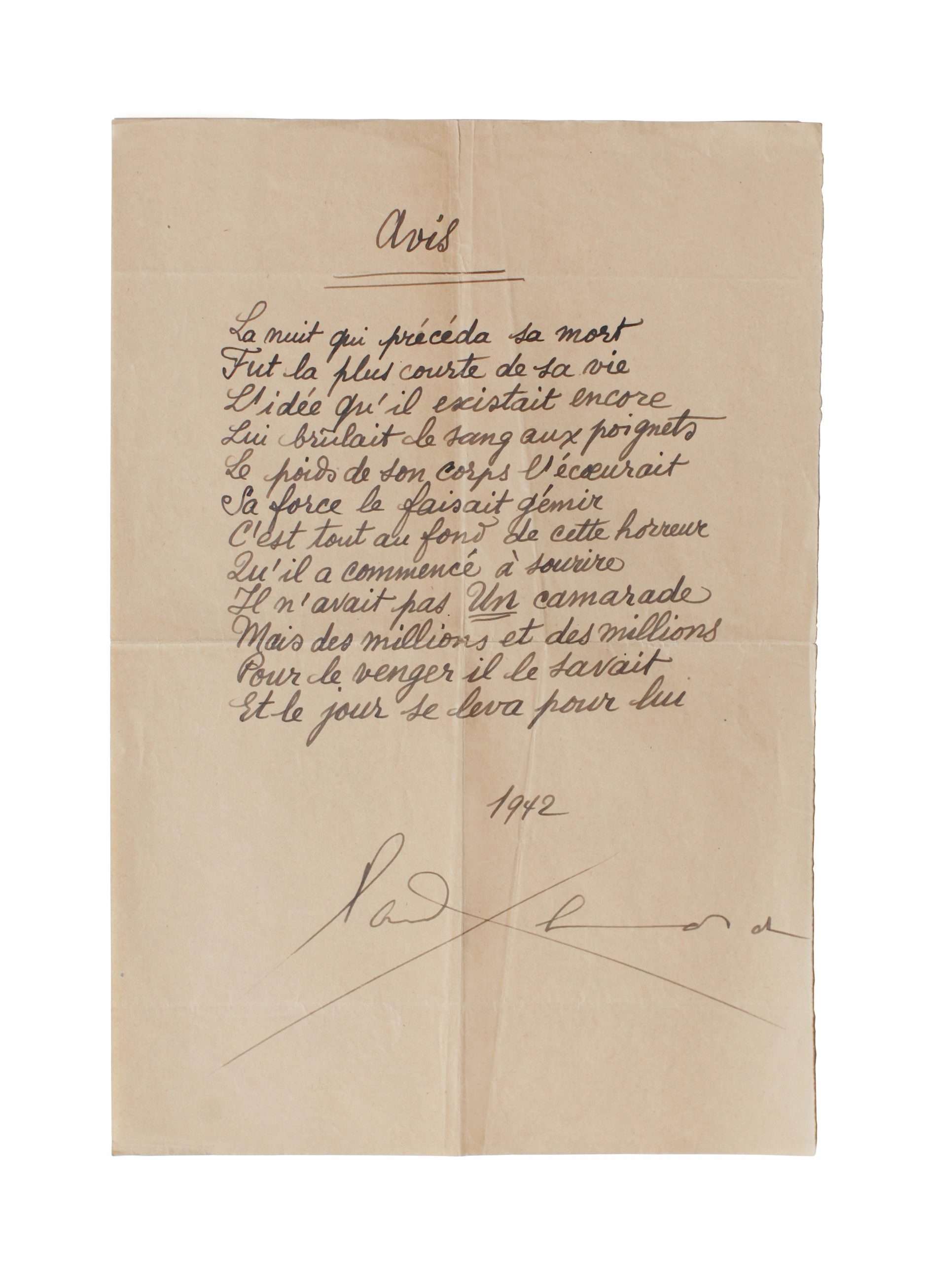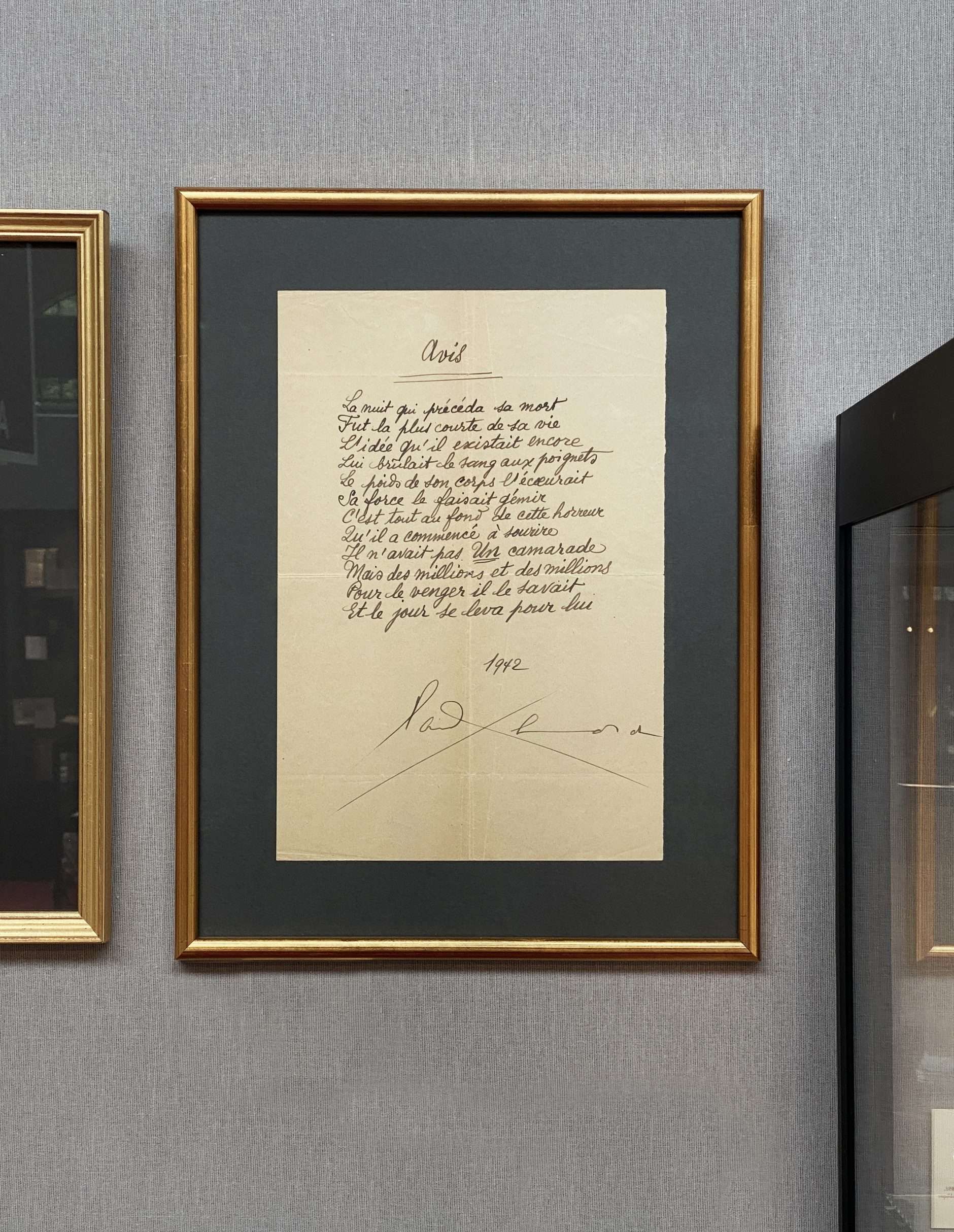ÉLUARD, Paul (1895-1952)
Autograph poem signed « Paul Eluard »
N.p, 1942, 1 p. in-folio (21 x 31 cm) on brown paper
« The night before his death / Was the shortest of his life »
Fact sheet
ÉLUARD, Paul (1895-1952)
Autograph poem signed « Paul Eluard »
N.p, 1942, 1 p. in-folio (21 x 31 cm) on brown paper
Made-to-measure framing, under Museum glass, floating document on grey Marie-Louise, golden frame
Slight fold marks (professionally attenuated)
A magnificent poem, opening the collection Au rendez-vous allemand and symbolizing alone the spirit of the Resistance
Avis
La nuit qui précéda sa mort
Fut la plus courte de sa vie
L’idée qu’il existait encore
Lui brûlait le sang aux poignets
Le poids de son corps l’écœurait
Sa force le faisait gémir
C’est tout au fond de cette horreur
Qu’il a commencé à sourire
Il n’avait pas UN camarade
Mais des millions et des millions
Pour le venger il le savait
Et le jour se leva pour lui
1942
Paul Eluard
In Raisons d’écrire, Paul Éluard gives the following comment on this poem: “Anonymous, Avis was asked of me by Paulhan for a newspaper that could not be published. On the walls of Paris, notices, threats or lists of hostages, were displayed, frightening some and shame all.” The first “notices” were posted on the walls of Paris during the winter of 1940-1941).
First published in Les Poèmes français, Lausanne, 1943, without signature, the poem was then reprinted in L’Honneur des poètes [II], p. 78, signed “Jean du Haut”, then in Traits (July, n°7), anonymous and untitled. It was later reproduced in Paul Éluard, Parrot (1944), p. 146, before appearing in Au Rendez-vous allemand and deliberately placed in first place by the poet. It was also set to music by Elsa Barraine in 1946. The score is dedicated to the memory of the resistance fighter Georges Dudach, shot as a hostage by the Germans in 1942 at Mont-Valérien.
One of Éluard’s most moving poems
Provenance:
Archives Louis Aragon
Bibliography:
[See above] – Œuvres complètes, t. 1, éd. Marcelle Dumas et Lucien Scheler, Pléiade, p. 1253



